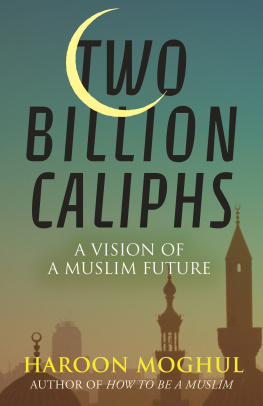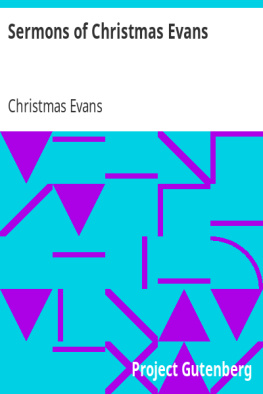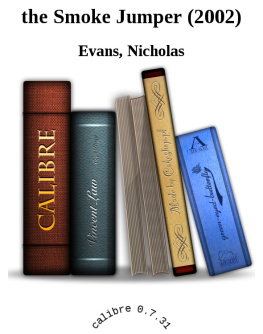Preface
In the Indian town of Qadian live a group of just over three thousand people who are absolutely certain that they are Muslims. They know that they are truthful followers of the Prophet Muhammad, and they are sure that their interpretations of the Quran are indisputable. They form a local branch of a global religious hierarchy in which disputes are routinely settled by appeal to higher authority. Moreover, they consider themselves blessed to know exactly where that authority lies, for they see the system within which they live as divinely ordained and their leader as Gods lieutenant on earth. For these people, knowing how to practice their faith is straightforward, and truth is joyously self-evident. Moreover, the modern world does not present them with a challenge, for they see all of modernitys organizational, technological, and scientific accomplishments as a mere foretaste of what will come to pass with the global ascendency of the true Islam that they practice. Despite their confidence in being Muslim, however, these people face a very pressing difficulty, for in countries across the world, their Muslimness is contested and even denied. They call themselves Ahmadi Muslims; others describe them as heretics.
This book is about the challenges that Ahmadi Muslims face in proving their Muslimness. It is about their struggle to convince others of a truth about which they are absolutely certain; it is about the limits and possibilities of demonstrating what is known. My impetus for writing a book about the struggles that Ahmadis face in manifesting their Muslimness arose from the fact that I, like them, have often struggled with the challenge of convincing others. Specifically, I have often striven in vain to persuade my fellow anthropologists about the religious conviction that was displayed in my field site. Anthropologists, it seems, love to doubt certainty. Particularly within the anthropology of Islam, a keen attentiveness to the ambivalences of religious belief has become a hallmark of good ethnographic practice in the last few years, and any claim that people might relate to truth in a linear and straightforward fashion is met with skepticism. There is a good reason for this skepticismafter all, it is an attitude that cautions us to attend to the individuality of our interlocutors and thus prevents us from engaging in Orientalizing stereotypes. But this skepticism doesnt really help us to understand people like those I studied: members of a new religious movement who enthusiastically embrace self-essentialization and for whom certain aspects of their relationship to truth are stable and predictable.
A fundamental goal of this book is to show that if we want a better understanding of the lived religious experience of people like the Ahmadis, we have to broaden our definitions of religious doubt. I will argue that much anthropological thought, following a long Western tradition, tends to see doubt only in terms of one very particular relationship to truth: belief. Thus, we have tended to see doubt as the inverse of belief, a product of belief, a hindrance to belief, and, in some cases, a path to belief. But belief captures only one possible way of relating to truth. What if belief is not the aspect of peoples relationship to truth that they problematize and worry over? What of situations in which people know how to believe in truth but are unsure of how to prove it, display it, demonstrate it, witness it, or even touch and experience it? In Qadian, truth is related to through an idiom of responsibility rather than belief, and this fact has a profound effect upon the doubts that people feel. Qadian appears to be a place of complete certainty only because of our poverty of imagination regarding doubt: it is in fact a place in which people constantly wrestle with their relationship to truth. This book is, therefore, about the possibilities of doubt beyond belief.
This book was made possible only by the hospitality and kindness of Qadians residents. While many people in Qadian helped me with my research, all mistakes, misunderstandings, and inaccuracies are mine alone. To Arif, Athar, Basharat, Husam, Habib, Inam, Mahmood, Niaz, Dr. Majeed, Malik, Naeem, Osman, Shariq, Sohail, Shoaib, Rashid, Tahir, Yasir, Wahiduddin, and others, I owe a debt that cannot be repaid in words. Bilal deserves special mention for the many hours he spent teaching me the fundamentals of Urdu. Without the generosity of Qadians senior officials, chiefly Nazr Talim Sb. and Nazr Aala Sb., I could not have conducted this fieldwork. Mehfuz Sb. and his team at the Langar Khana, in particular Shivji, were a constant support. In the United Kingdom, Asim was a great help, especially in enabling me to arrange a meeting with the caliph. My research in India was also made possible only by the generous help of members of the Department of Sociology at Delhi Universityin particular Rita Brarawhere I was an affiliated researcher.
Adeel Hussain read an early version of the whole manuscript and was a consistently inspiring discussant. He helped me to see what I had overlookedincluding the importance of sacrifice and the esoteric elements of Mirza Ghulam Ahmads writingsand he motivated me to think on a bigger scale. Joel Robbins and Matthew Engelke both read sections of the manuscript and provided generous comments. Patrick McKearney read and commented on a number of parts of the book and also gave me support in the form of friendship. For three years at the Centre for Research in the Arts, Social Sciences and Humanities, Christos Lynteris, Branwyn Poleykett, and Lukas Engelmann were wonderful companions, colleagues, and friends; I thank them for the many stimulating ideas that have directly ended up in this book, as well as for helping me to broaden my intellectual horizons and think beyond my specialism. In London, Nick Long has been a great support as I have attempted to balance the challenges of teaching and writing simultaneously.
Matt Candea, Jo Cook, and Paolo Heywood have all been inspiring discussants and friends, and our many conversations have helped to shape the ideas within this book. Jon Mair has been a wonderful interlocutor over the last few years, and conversations that we had together about what it means to speak ethically across borders have helped me to understand the challenges my Ahmadi interlocutors face as they attempt to speak across traditions to an often hostile world. Both Carrie Humphrey and Soumhya Venkatesan read the entirety of the manuscript in an earlier version, and their comments were probing, rigorous, and enlightening.
There are two people without whom this book would not exist. Susan Bayly has been a wonderful support and a brilliant teacher. James Laidlaw has nurtured this project since its inception, and with endless patience he has helped me to clarify my ideas over many years. His guidance has been invaluable, and the creativity of his thought has been inspiring.
An earlier version of chapter 5 appeared as Beyond Cultural Intimacy: The Tensions That Make Truth for Indias Ahmadi Muslims in American Ethnologist 44, no. 3 (2017): 409502. The fieldwork for this project was supported by the Economic and Social Research Council, grant number ES/I901957/1. At Cornell University Press, Jim Lance has been a wonderful editor, without whom this book would not have reached its full potential. I thank him and the production team for all their hard work. The three anonymous readers were sources of great inspiration and insight, and I thank them for their detailed engagement with my text.




